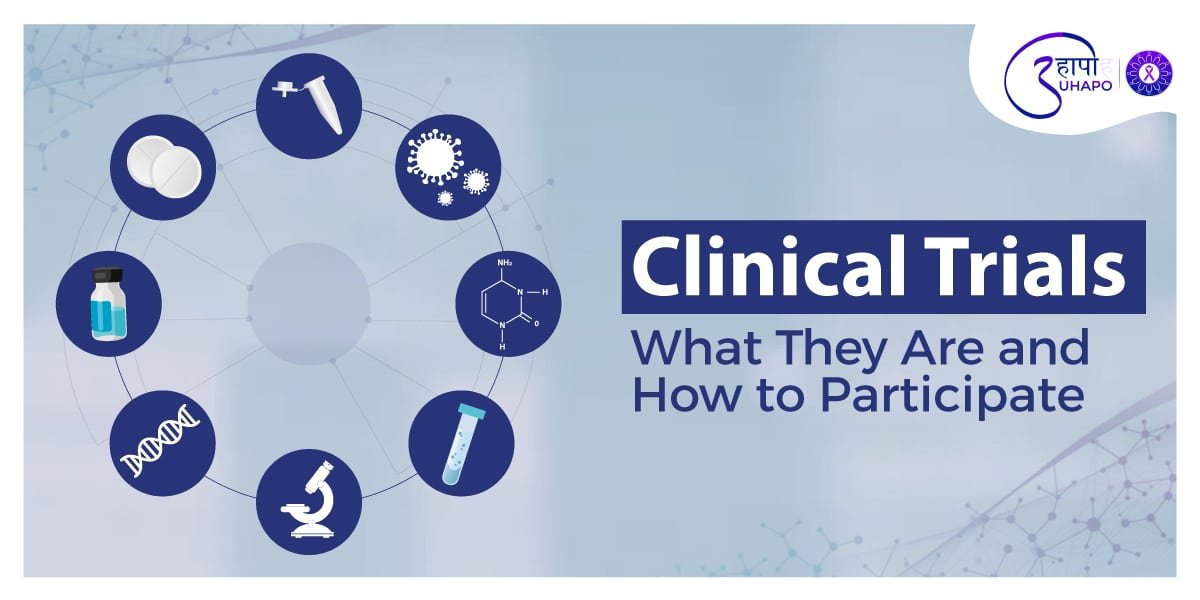National Cancer Research Month – Clinical Trials: What They Are and How to Participate
May is National Cancer Research Month, an opportunity to recognize and promote the tremendous advances in cancer research that are critical for improving patient outcomes and identifying cures. Research studies are a key component of this study. These studies are critical for finding new treatments and enhancing existing ones, providing hope and potentially life-saving options to cancer patients around the world.
But what precisely are clinical trials, and how can you engage in them? This blog will answer these concerns and provide an in-depth look at the importance of clinical trials in cancer research.
What are Clinical Trials?
Clinical trials are human-based research studies that test medical, surgical, or behavioral therapies. They are the primary approach in which researchers determine if a novel treatment, such as a medicine or diet, is safe and effective in humans. Clinical trials follow a precise protocol, a detailed plan specifying the study’s design, data collection methods, and evaluation procedures.
In cancer research, clinical trials often focus on –
Clinical Trials – These trials evaluate new cancer treatments or new applications for established treatments. This could include medications, radiation therapy, surgical techniques, or a combination of these methods.
Prevention Trials – These look at ways to prevent cancer in people who have never had it before or to keep a new type of cancer from developing in those who have already had cancer.
Screening Trials – seek innovative ways to detect cancer at an early stage, when it may be more curable.
Quality of Life Trials – also known as supportive care trials, these studies look into ways to improve the comfort and quality of life for cancer patients and survivors.
Phases of Clinical Trials
Clinical trials for cancer treatments typically go through four stages –
Phase I – involves testing a new treatment in a small group of people (20-80) to determine its safety and detect negative effects.
Phase II – The treatment is administered to a larger group (100-300) to determine its efficacy and safety.
Phase III – The medication is administered to large groups of patients (1,000-3,000) to validate its efficacy, monitor side effects, compare it to commonly used treatments, and gather data that will allow it to be used safely.
Phase IV – trials are conducted after a medication has been approved for use to acquire new information on the drug’s risks, benefits, and optimal use.
Why Participate in a Clinical Trial?
Participation in clinical trials has various possible advantages –
Access to Innovative Treatments – Participants can receive new treatments before they become widely available.
High-Quality Care – Participants frequently receive great care and supervision from a team of doctors, nurses, and other healthcare experts.
Contribution to Research – Participants assist in advanced medical research, which could benefit future patients.
Frequent Monitoring – Regular monitoring and check-ups can lead to early identification of potential problems.
However, potential dangers must be taken into account, such as adverse effects, the probability that the new medication would be ineffective, and more frequent hospital visits.
How to Participate in a Clinical Trial
If you are interested in participating in a clinical trial, you should take these steps –
Discuss with your doctor – Your primary care doctor or oncologist can advise you on whether a clinical trial is appropriate for your specific disease and general health.
Find a Trial – Use websites such as ClinicalTrials.gov, the National Cancer Institute (NCI), and other cancer research organizations to find trials that are relevant to your disease type and treatment history.
Eligibility – Review the trial’s eligibility requirements. Each trial has unique requirements based on age, kind of cancer, stage of disease, past treatment history, and overall health.
Informed Consent – If you qualify for a trial, you will be asked to provide informed consent. This includes learning about the trial’s objective, duration, necessary procedures, risks, benefits, and your rights as a participant.
Enrollment – If you accept to join, you will be entered into the trial. You will go through an initial screening process before beginning the treatment program detailed in the study.
Ongoing Participation – Throughout the trial, you must adhere to the protocol, attend all scheduled appointments, and provide input on your health and any side effects you encounter.
Conclusion
Clinical trials are critical to improving cancer research and discovering novel medicines that can improve patient outcomes and save lives. National Cancer Research Month is an excellent opportunity to promote awareness about the significance of these studies and encourage participation. If you or a loved one is thinking about participating in a clinical trial, make sure to have a full discussion with your healthcare team about the potential advantages and hazards. Participating allows you to gain access to cutting-edge treatments, by contributing to a bigger body of research that may one day lead to a cancer cure.

